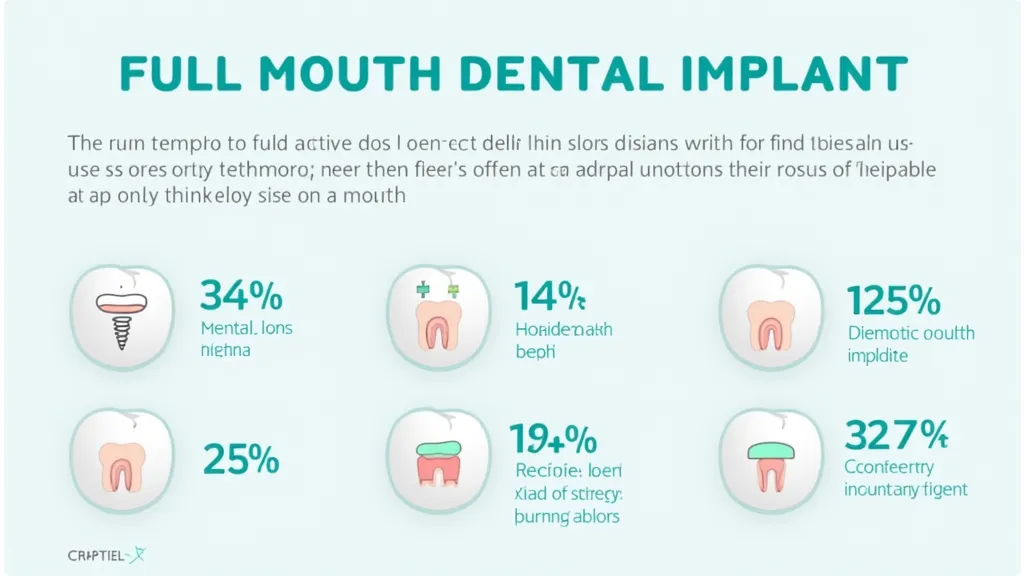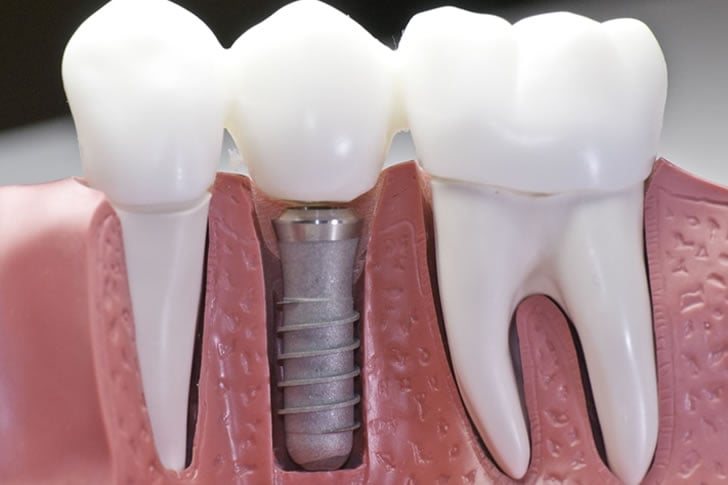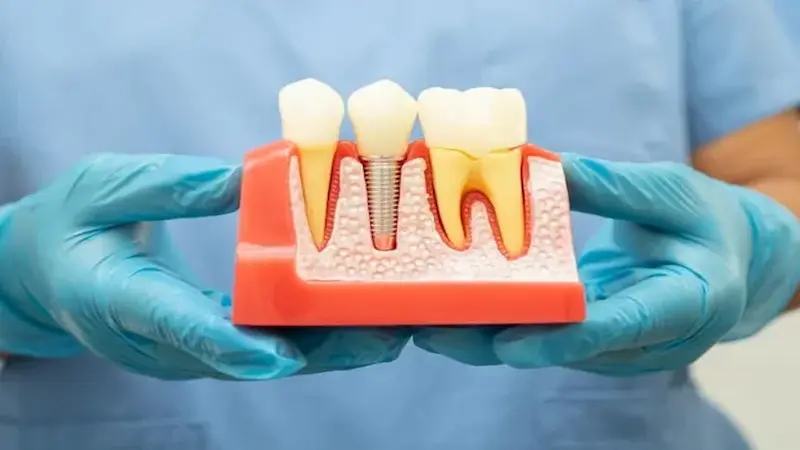Understanding Dental Implants, Medicare, and Coverage Options
Dental implants can significantly improve your oral health. Here is a guide to understanding how Medicare interacts with dental implant coverage.

What Are Dental Implants?
Dental implants are artificial tooth roots used to support restorations like crowns, bridges, or dentures. They are made of biocompatible materials such as titanium, which fuses with your jawbone to provide a stable foundation for replacement teeth.
Importance of Dental Implants
Dental implants offer numerous benefits over other tooth replacement options. They prevent bone loss, maintain facial structure, and provide a more natural look and feel than dentures or bridges. With proper care, dental implants can last a lifetime, making them a good solution for missing teeth.
Does Medicare Cover Dental Implants?
Original Medicare (Part A and Part B)
Medicare, the federal health insurance program primarily for individuals 65 and older, consists of different parts. Original Medicare, which includes Part A (hospital insurance) and Part B (medical insurance), does not typically cover dental care. This includes routine check-ups, cleanings, fillings, or dental implants.
Medicare Advantage (Part C)
Medicare Advantage plans are an alternative to Original Medicare and are offered by private insurance companies. These plans are required to offer at least the same coverage as Original Medicare but may include additional benefits, such as dental care. Coverage specifics can vary widely between plans, so it's crucial to review each plan's details to determine whether dental implants are covered.
Steps to Determine Coverage for Dental Implants
Navigating Medicare coverage for dental implants can be challenging, but the following steps can help simplify the process:
Start by understanding what your existing Medicare plan covers. Original Medicare will likely not offer dental benefits, but Medicare Advantage plans might cover certain dental procedures, including implants.
Your dental provider can offer detailed information about the specific procedures you need. They may also know which insurance plans generally cover dental implants.
Contact your Medicare Advantage plan's customer service for detailed coverage information. Be specific about the dental implants to get accurate and relevant details.
If your current plan doesn’t cover dental implants, consider switching to a plan that does. There are numerous comparison tools online, and Medicare offers a Plan Finder tool to help you evaluate options based on your needs.
Tips for Selecting a Medicare Advantage Plan with Dental Coverage
Finding a plan that covers dental implants can be time-consuming but worthwhile. Here are some tips to aid your selection process:
Understand what dental procedures you might require aside from implants. Some plans offer comprehensive coverage that includes preventive care, major procedures, and orthodontics.
Like very insurance policies, Medicare Advantage plans often have networks of preferred providers. Ensure that your preferred dentist is within the network to maximize your benefits.
Compare premiums, copayments, coinsurance, and out-of-pocket maximums. It's essential to consider not just the monthly premium but the overall cost-effectiveness of the plan.
Look for any clauses or stipulations regarding dental implant coverage, such as waiting periods or prerequisites like prior authorizations.
Consult a Medicare advisor or insurance broker who can provide expert guidance tailored to your individual circumstances.
Maximizing Your Dental Implant Benefits
Once you have found a suitable Medicare Advantage plan with dental implant coverage, take full advantage of it:
Preventive care can help avoid more complex dental procedures in the future. Very plans cover bi-annual check-ups, which can also help detect potential issues early.
Adhere to all prescribed plans and schedules for implant procedures. Ensure that any pre- and post-operative protocols are followed to avoid complications.
Maintain organized records of all dental treatments, prescriptions, and correspondences with your insurance provider. This will help should any disputes or questions arise regarding coverage.
Financial Assistance Options If Coverage Is Limited
If your Medicare plan does not fully cover dental implants, consider the following alternatives for financial assistance:
Many dental schools offer procedures at reduced costs, performed by students under supervision.
If you have an HSA or FSA, these funds can often be used to cover dental expenses.
Some dental practices offer payment plans or financing options to spread out the cost of implants over time.
Certain non-profit organizations provide grants or low-cost dental care to eligible applicants.
Conclusion
Understanding how dental implants, Medicare, and coverage intersect can help you make informed decisions about your oral health. By researching your options and taking proactive steps, you can find manageable financial solutions to achieve a healthy, confident smile.









